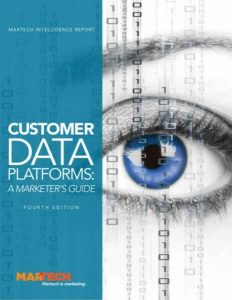
stevepb / Pixabay
The pandemic has without a doubt shaken up every facet of our lives. Strict social distancing measures have pushed many small businesses with physical storefronts to explore a whole new world – online retail.
Overall, U.S. e-commerce grew 44.5% in Q2, the biggest quarterly growth in more than 20 years. This massive e-commerce surge can be largely attributed to the pandemic, but the concerning question top of mind for traditional brick-and-mortar retailers is: What if it isn’t? We’re headed into an era where the e-commerce platform is going to be more important than the physical storefront long past the fallout of the pandemic.
In this new territory, comes new financial liabilities, tax obligations, and accounting practices. Are you thinking of moving your business permanently online? How about expanding more into the e-commerce space amid COVID? Here’s what you show know.
E-com accounting differs from traditional accounting
Many new online retailers assume that e-commerce accounting is just like accounting for any other business. In reality, if you’re modeling your accounting after other businesses, this could drastically impact your success. It’s critical to know, and comprehend, the following unique aspects and nuances that set e-commerce accounting apart from other business sectors.
- Identifying the transactional data: Most businesses identify transactional data through bank accounts and credit cards. However, most e-com transactions are found on the businesses selling channels (Shopify, Amazon, eBay, social media, etc.).
- Online sales tax: Tax rules for e-commerce businesses are complex and constantly changing from state-to-state, meaning you constantly have to be monitoring for court rulings and legislative changes
- Inventory tracking: As an e-commerce business, inventory, and cost of goods sold (COGS) are the most important numbers. Your business will need to understand how to calculate correct COGS and inventory management along with how to account for the flow of inventory through your business
Strategize how to reduce your tax burden
Business owners new to the space typically don’t have the “financial literacy” to effectively manage and strategize their taxes. What I typically see with my e-commerce clients is that they don’t know how to report their income correctly OR how to plan to report in ways that are both accurate and beneficial to their bottom line. So, what do I suggest?
- Become an S-Corp: One of the first things I recommend to my e-commerce clients is to become an S corporation (S-Corp). For United States federal tax income purposes, an S-Corp is a closely held corporation that makes a valid election to be taxed under Subchapter S of Chapter 1 of the Internal Revenue Code. In layman terms – electing as an S-Corp can save you up to 15.3 percent on your tax bill if implemented correctly. This strategy is valuable because if you have an LLC, you can file an election with the IRS to request to be treated as an S-Corp for tax purposes even though you still have an LLC for legal purposes.
- Tax Deductions: You want to have a strong understanding of what you are eligible to claim as a tax deduction as an online retailer. Start keeping track of all your expenses immediately. If you haven’t been up to this point, I suggest going back through your records and getting organized now. By the time the 2021 tax reason rolls around, you’ll want to have documentation for each deductible business expense throughout the year so that you can make accurate claims. A few things that can be deducted include Internet, cell phone, software services, office supplies, travel costs, and more. The IRS also offers a home office tax deduction to e-com businesses that are run out of the home, if select criteria are met.
- Accountable Plan: Adopting an “Accountable Plan” is also a suitable tactic. This is an IRS-approved reimbursement program that allows a business to reimburse employees for business expenses they incur as part of their work, which could include you as a business owner if you are also an employee of your business entity. If an Accountable Plan is set up, then you can deduct those reimbursed amounts as if the business had incurred the initial expense itself. Accountable Plans also allow people who work from home the ability to deduct rent, cellphone expenses, car expenses as well as many other items.
- Retirement Fund: Looking for an immediate way to save on taxes? You can contribute to a retirement plan. Many plans, such as traditional IRA and traditional 401(k), contributions are 100 percent tax-deductible. Additionally, payments made after the close of the year can be deducted as long as the contribution is made before April 15 each year.
Weigh the Options
If you have the time and energy to allocate, you can teach yourself to manage your taxes/accounting and lean on software solutions like TaxJar, Taxify, Avalara, etc. However, it’s understandable if you don’t have the time or the effort to dedicate to your e-commerce accounting practices. Instead, you can consider working with a professional that knows the ins and outs of e-commerce accounting to take care of it for you.
If you are going to outsource the job, it’s highly recommended to work with an expert that specializes in online retail because they can genuinely understand your business and can therefore better strategize for you. One example is that this type of accountant is experienced in diving into the backend of all your sales channels to pull data and find the accurate numbers for sales and all other activities.
Takeaway
The sooner you can have all of your tax and accounting squared away, the better. If you’re new in the e-commerce game, you don’t want to be scrambling to figure everything out come tax season. Efficient tax planning begins the same minute your business operations do. This is why getting an accountant aligned with your business objectives early on is an efficient way to free up some of your time, alleviate responsibilities, maintain tax compliance, and ultimately save you money.
Digital & Social Articles on Business 2 Community
(68)
Report Post



